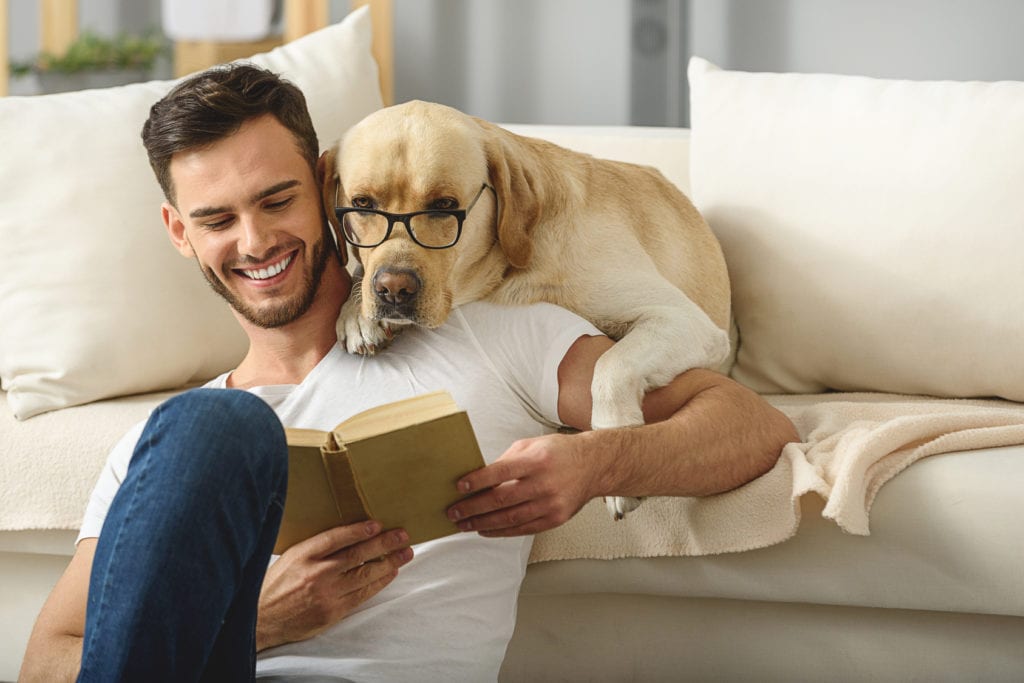If you’re reading this, you might have been hooked with essential oils and their promising health benefits. However, you’re also wondering if it affects your household pet. Do they have similar effects on our dogs and cats? Is there an oil that’s safe or unsafe for pets?
Are Essential Oils Harmful To Cats & Dogs?
Like other products sold commercially, essential oils are safe for you and your pet given that they are used in proper amounts. While there are tons of benefits in a single bottle, some may have unwanted effects when used in excessively high quantities. To make sure your pet stays safe in every aromatherapy session, check out our guide below.
Essential Oils That Are Safe For Pets
Some essential oils trigger allergies and sensitivities, but are there are way more variants that benefit them physically and emotionally. Following are essential oils we strongly recommend you use with your pets:
- Peppermint – Peppermint oil helps relieve arthritis pain and hip dysplasia. It also repels pests from accumulating in the fur.
- Ginger – Ginger oil also reduces arthritis pain and hip dysplasia. It also promotes healthy digestion.
- Cedarwood – Cedarwood oil repels bugs, leading to healthier skin and coat among pets.
- Sweet Basil – Having antibacterial and antiviral attributes, sweet basil makes a great air freshener at home.
- Carrot Seed – Commonly used as a topical treatment, carrot seed oil helps aid skin dryness and promotes healthier skin.
- Lemongrass - Lemongrass is a harmless essential oil to use around pets at a low concentration. However, it shouldn’t be ingested by pets or directly applied to their skin. When used correctly and sufficiently, its fragrant citrus smell can ward off fleas and ticks, while improving your pet’s skin.
- Lavender – Lavender is an excellent starter oil for pets that are beginners to essential oils. It creates a sense of peace and harmony while offering a calming effect for pets. Using therapeutic-grade lavender also helps in dog training. It helps dogs deal with stressful situations and trainers to calm hyperactivity in canines.
- Frankincense – Frankincense oil is a good all-around oil, assisting on various purposes including wound healing, bacteria busting, and behavior improvement. And like lavender, it also has this quieting, calming effect.
Essential Oils That Are Unsafe For Pets
Not all pets are the same. One may act to essential oils differently than the other. Some animals can be rather sensitive to specific types of oils. For example, cats are sensitive to essential oils containing polyphenolic compounds such as tea tree, cinnamon, thyme, wintergreen, clove, oregano, and birch. These mess up their liver detoxification process. When this happens, there is a higher chance for toxins to accumulate in your pet's body and cause cell death.
As for dogs, allergen-releasing essential oils need to be used with caution. Some of these oils are anise, clove, wintergreen, garlic, horseradish, juniper, yarrow, and thyme. Apart from causing allergies, they may also trigger skin issues and interfere with your pet’s natural body algorithms.
If any of these oils are part of your aromatherapy, it’s best to use them with utmost care. If you’re using an essential oil diffuser, make sure that they are not anywhere near the treatment area. If you’re applying the oils on your pressure points, take extra caution when petting your furry companions.
How to Stay Safe When Using Essential Oils Around Pets
It’s better to err with caution when using essential oils with your animal pets around. Keep in mind that animals have a stronger sense of smell than you do, so using too much essential oil might do more harm than good.
Aside from using the right amounts, here are other quick tips so you can continue using your favorite essential oils without having to worry about your pet’s health.
- Use a high quality oil diffuser. Doing this will give you better control of the amount of oil that the diffuser emits. When proper amounts are emitted into the air, neither you nor your pet will get overwhelmed.
- Choose only top-quality essential oils. A lot of essential oil brands are out in the market as of late, but keep in mind that not all boasts therapeutic properties. Be wary of impure, low-quality oils that has nothing but artificial fragrances and harmful contents such as solvents. Pick organic, therapeutic grade essential oils from reputable brands to make sure you’re getting all the helpful benefits these oils have in store.
- Test a small amount. An essential oil being safe for pets in general doesn’t mean it’s 100% safe for your animal friend. That’s why this first step is so important. Always start out slow to see how your pet reacts each time you use your favorite aromatherapy oil. Use 1-2 drops at first and let the aroma to seep through the room in 15-minute intervals.
- Always, always dilute your oils. Unless diluted properly, we do not encourage the use of essential oils for cats. Dogs might react to them differently, just make sure to never apply it directly to the skin.
- Store and use oils in safe places. Always keep your essential oils in high places where curious noses can’t reach. Depending on the type of oil, both pure and diluted essential oils can cause adverse effects when ingested. Make sure to keep your oils safely tucked away when not in use. Always clean up any residues that can occur when using a diffuser or blending with carrier oils.
- Seek your vet. Before attempting anything with your pet and essential oils, it’s strongly recommended to ask your veterinarian so you can get professional advice on proper use and dosage based on your animal friends’ breed, age, size, and medical history.
Start Enjoying Your Essential Oils With Your Furry Buddies
Now that you’re aware of which essential oils to use and how to best use them, you’re ready to experience the calming benefits of pure essential oils.
If you do want to use them on your pets, remember to not use them topically or directly. Also, do a patch test (2 drops max) before exposing your pet to a room infused with essential oils for a long period of time.
Consider using an essential oil diffuser so you can effortlessly dilute your favorite aromatherapy oils while extending the wonderful benefits to your beloved animal companions.


